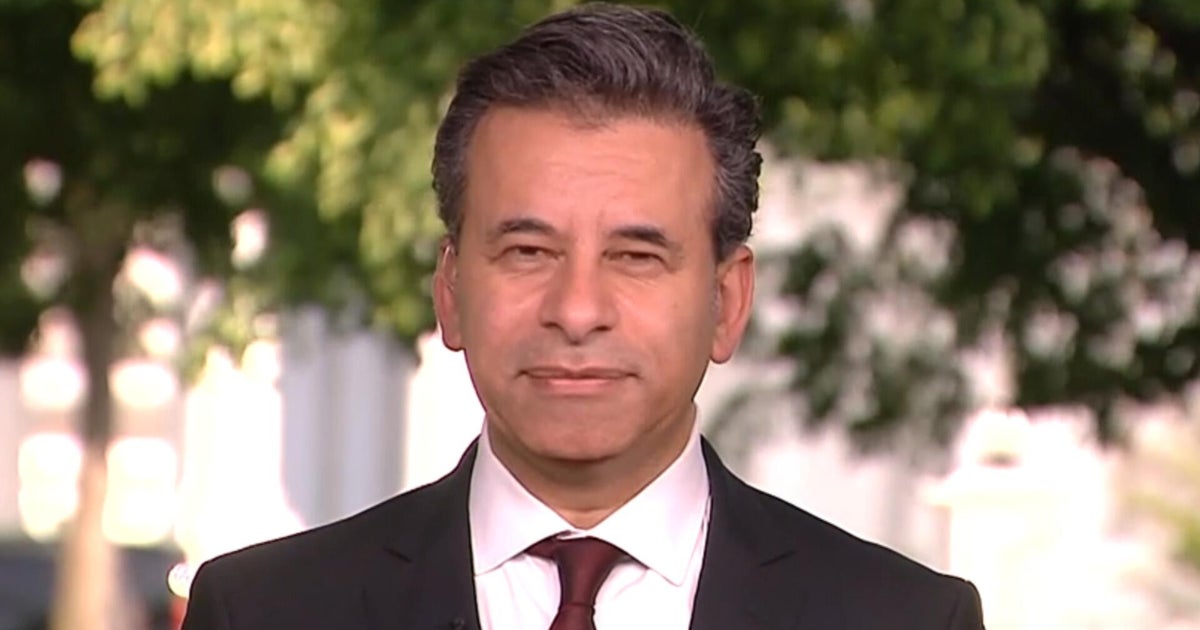In a recent development concerning public health policy and vaccination against COVID-19, Dr. Marty Makary, Commissioner of the Food and Drug Administration (FDA), discussed the agency’s current approach to approving vaccines for the forthcoming winter season. Speaking to CBS News’ chief Washington correspondent Major Garrett, Dr. Makary revealed pertinent details about the ongoing processes and challenges faced by the FDA as it prepares for the potential demands of the next phase of the pandemic response.
Dr. Makary openly expressed concerns regarding the insufficiency of data concerning booster shots, an issue that seems to have eroded some level of public trust among healthcare providers. Despite this, the FDA has received numerous applications concerning booster vaccinations, none of which he could comment on specifically. “We’re taking a look. I can’t comment on any particular application. As you know, we have a bunch of applications for those booster shots,” said Makary.
He emphasized the need for robust data to guide decision-making processes, rather than allowing gaps to be filled with mere opinions. “I think there’s a void of data. And I think rather than allow that void to be filled with opinions, I’d like to see some good data,” he noted. This statement indicates a shift in the FDA’s approach since the Biden administration, when officials were more forthcoming with plans to routinely update COVID-19 vaccines annually.
The previous year’s guidance issued by the FDA delineated what strains should be targeted by the vaccines in the subsequent winter. By August, updates to the COVID-19 vaccines produced by Moderna and Pfizer to address these new strains had been approved. However, the broader question of how regularly and under what criteria such updates should continue remains a matter of intense discussion within scientific and public health communities.
Moreover, the dialogue extends beyond the FDA. The Centers for Disease Control and Prevention (CDC) is also contemplating the possibility of significantly narrowing its recommendations for COVID-19 vaccines, signaling a potential recalibration of public health strategies based on evolving scientific knowledge and the prevailing epidemiological landscape.
Dr. Makary further referenced the delay related to the full approval of Novavax’s COVID-19 vaccine, previously anticipated by April 1. The FDA requested Novavax commit to another clinical trial, underscoring an enhanced emphasis on gathering concrete evidence of efficacy for newer formulations before granting approvals. “Today, there is broad population immunity, and the big question is whether it provides a benefit. Without a study on the new formulation and product, we can’t give an honest evidence-based answer to that question,” Makary explained.
This heightened demand for clinical data isn’t isolated to Novavax. Dr. Makary mentioned that multiple companies have been asked to undertake basic clinical studies. “It’s my general feeling, not with this particular product, which I can’t discuss in depth, but with drugs in general, that we need to know if they work today in order to be able to recommend them,” he elaborated. This perspective signals a rigorous approach towards ensuring the continued effectiveness and safety of vaccines in a changing viral landscape.
The FDA’s deliberations and decisions are also influenced by individuals such as Dr. Tracy Beth Høeg, a specialist who has taken a major role in reviewing data within the agency. Dr. Makary praised her contributions: “Dr. Høeg is an amazing M.D.-Ph.D. who has joined my staff as a special assistant to the commissioner. And she is deeply involved in reviewing dataset at the agency. I’m really excited to have her in the process.”
Reports from industry publications like The Pink Sheet outlined that Dr. Høeg’s expertise was specifically utilized in the review of Novavax’s application. She was also appointed to the CDC’s Advisory Committee on Immunizations—a role previously occupied by a seasoned vaccine official from the FDA, marking a significant inclusion of new perspectives in vaccine deliberations.
This scenario of vigorous debate and evolving strategies is mirrored in the critique from former FDA officials who have voiced concerns about the potential deviation from established scientific processes under the agency’s current political leadership. Former FDA officials Phil Krause and Luciana Borio, in a published commentary, emphasized the importance of adhering to standard practices. “Shifting standards and late-stage demands for new data—based on faulty scientific assumptions—erode trust, delay access to important tools, and discourage developers from advancing vaccine innovation,” they argued.
From the ongoing dialogue within the FDA and CDC to public reactions and the voices of former officials, it is clear that the United States is at a crucial juncture in its approach to managing COVID-19 vaccination policies. As the virus evolves, so too must the strategies employed to combat it, with an acute focus on data-driven decisions to ensure public trust and health security.









